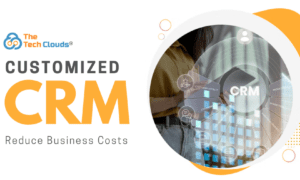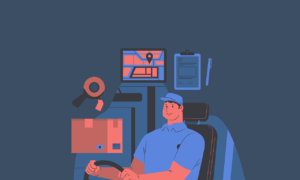Introduction
These days, mental health care is more important than ever. With nearly one in five adults in the U.S. experiencing mental illness annually, mental health providers are busier than ever. But this rise in demand means facilities have to juggle a lot, from staying compliant with regulations, managing staff to providing personalized care that really makes a difference.
Surprisingly, many facilities still lean on outdated systems or generic CRMs that don’t quite fit their unique needs. And that’s a problem. These tools often slow things down, create confusion, and don’t support the specific workflows mental health providers need.
That’s exactly why a behavioral health CRM is such a game changer. Built just for mental health organizations, it helps streamline daily tasks, keeps everything compliant and most importantly improves care from start to finish.
What Makes a Behavioral Health CRM So Different?
You might wonder, “Isn’t a CRM just a CRM?” Not quite. Most standard CRMs are built for sales teams or general healthcare clinics, which don’t handle the complexities of behavioral health.
Behavioral health CRMs, on the other hand, are designed specifically for the way therapy centers, outpatient programs and behavioral health hospitals work. They’re much more than just contact lists. They tackle things like:
- Online intake forms — clients can fill out paperwork before their visit, which means less waiting and fewer mistakes.
- Appointment scheduling — juggling individual sessions, group therapy and recurring visits becomes a breeze, plus automatic reminders help cut down no-shows.
- Clinical notes and documentation — pre-built templates help clinicians write up treatment plans and progress notes quickly without missing a beat.
- Referral tracking — keeping tabs on where your clients come from helps build stronger community connections.
- Billing and insurance checks — automated eligibility verification saves tons of time and headaches for billing teams.
- Secure messaging — fully HIPAA-compliant, so conversations between clients and providers stay private and safe.
Put all that together and you get a system that gives your team a full view of each client’s journey without bouncing around between different programs or digging for missing info.
How Behavioral Health CRMs Solve Real Problems
Managing Fragmented Systems
Here’s a reality: many providers are stuck using separate software for intake, billing, clinical notes and follow-ups. This creates more work, duplicate data entry, errors and delays that frustrate staff and clients alike.
Did you know providers spend nearly a third of their time on paperwork? Imagine what could change if they had even just a little of that time back to focus on clients.
Behavioral health CRMs fix this by bringing everything into one place. That means fewer mistakes, faster workflows and less burnout.
Keeping Up With Compliance
Mental health records are some of the most sensitive out there. HIPAA and other laws require strict protection and failure to comply can lead to heavy fines not to mention lost trust.
Generic CRMs often miss the mark here. Behavioral health CRMs are built with security baked in encryption, audit trails and fine-grained user permissions all help keep your data locked down.
Plus, these systems don’t just store data, they help you stay on top of missing paperwork or upcoming deadlines by sending reminders. Staying compliant has never been this manageable.
Improving Client Engagement
Therapy works best when clients show up and stay engaged but life happens, people forget appointments or lose motivation.
A behavioral health CRM helps by sending automated appointment reminders via text or email. These alone can reduce no-show rates by around 25%, which makes a huge difference.
Patient portals give clients easy access to communicate securely with their care team, check their schedules, or fill out forms at their convenience.
Many CRMs also let clients track their own progress, which builds motivation and strengthens the therapeutic relationship.
Smarter Operations Through Real-Time Insights
Running a mental health facility isn’t just about the therapy, there’s a lot of behind-the-scenes work managing staff, finances and programs.
Behavioral health CRMs give administrators real-time data on admissions, discharges, referrals and program outcomes. This info helps identify trends, make smarter staffing decisions and optimize services.
On the money side, these systems automate billing workflows, track claims and manage denials, all reducing revenue leakage and improving financial health.
Designed for Growth and Telehealth
Whether you’re a solo practitioner or part of a multi-site network, behavioral health CRMs grow with your organization.
Most are cloud-based, so teams across locations can stay connected and consistent.
And with telehealth becoming a standard care method, these CRMs usually integrate smoothly with virtual session platforms, so scheduling, documentation and communication all happen in one place.
Conclusion
Mental health care is high stakes, every decision can change a person’s life.
Using outdated or generic tools only slows you down and puts clients at risk.
A behavioral health CRM is more than software, it’s a partner that helps your team work smarter, stay compliant and deliver better care.
Choosing a CRM built for behavioral health means you’re investing in a future where your facility can grow sustainably and your clients get the attention they deserve.



































